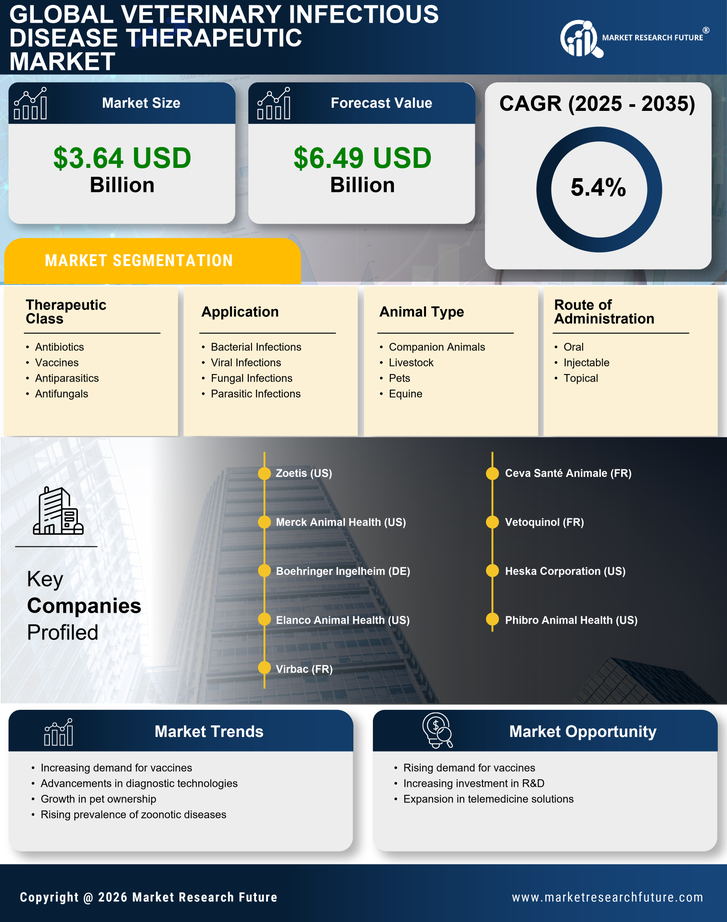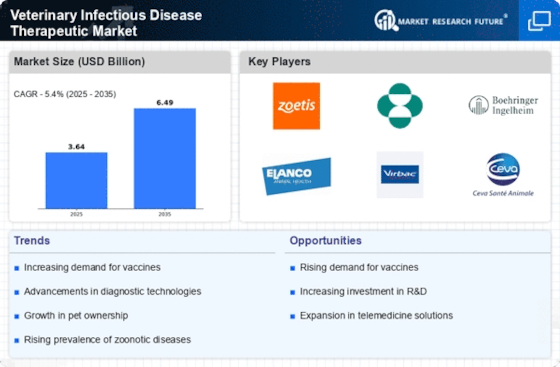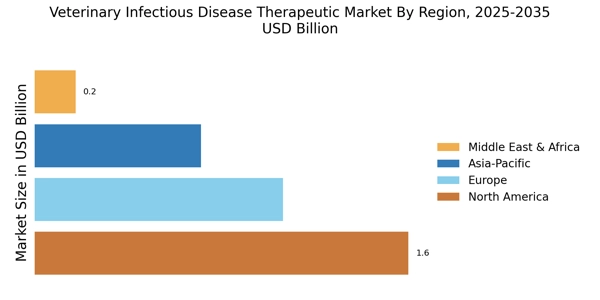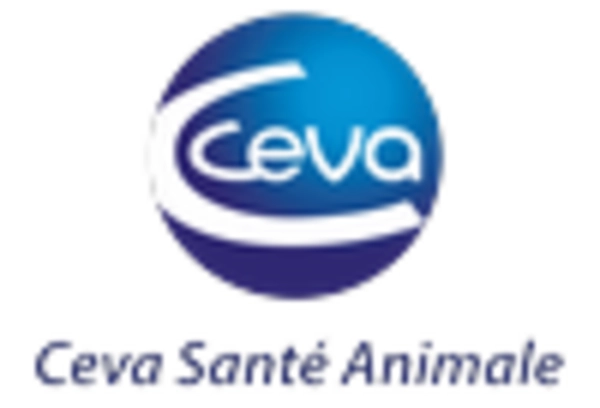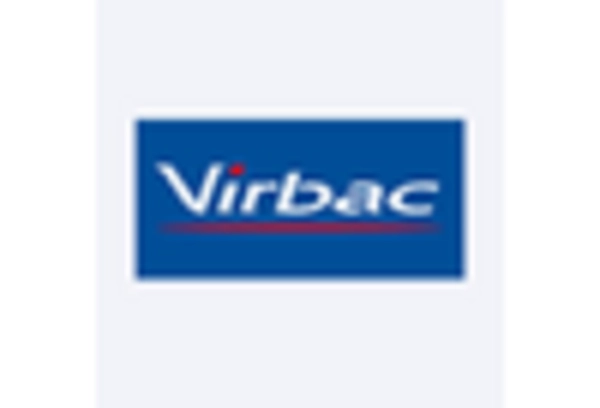Growing Awareness of Animal Health
There is a growing awareness of animal health and welfare, which is significantly impacting the Veterinary Infectious Disease Therapeutic Market. As pet owners become more informed about the risks associated with infectious diseases, there is an increasing demand for effective therapeutic solutions. Educational campaigns and outreach programs by veterinary associations are playing a crucial role in raising awareness about the importance of vaccination and timely treatment. This heightened consciousness is likely to drive market growth, as consumers seek out advanced therapeutics to protect their pets from infectious diseases. The market is projected to grow at a rate of around 6% annually, reflecting the increasing prioritization of animal health and the need for effective disease management strategies.
Advancements in Veterinary Medicine
Technological innovations in veterinary medicine are significantly influencing the Veterinary Infectious Disease Therapeutic Market. The development of novel therapeutic agents, including monoclonal antibodies and advanced vaccines, is enhancing treatment efficacy and safety profiles. For example, the introduction of mRNA vaccines has revolutionized the approach to preventing infectious diseases in animals, offering rapid and effective immunization strategies. Furthermore, the integration of telemedicine and digital health solutions is facilitating timely diagnosis and treatment, thereby improving overall animal health outcomes. This evolution in veterinary practices is expected to contribute to a market growth rate of around 6% annually, as practitioners increasingly adopt these advanced methodologies to address infectious diseases.
Increased Pet Ownership and Spending
The Veterinary Infectious Disease Therapeutic Market is benefiting from the rising trend of pet ownership and the corresponding increase in spending on pet healthcare. Recent statistics reveal that pet ownership rates have surged, with over 70% of households in certain regions owning at least one pet. This growing demographic is leading to heightened awareness of animal health issues, including infectious diseases, and a willingness to invest in preventive and therapeutic measures. Consequently, the market for veterinary therapeutics is projected to expand, with expenditures on veterinary services and medications expected to reach unprecedented levels. This trend underscores the importance of addressing infectious diseases in pets, thereby propelling the demand for effective therapeutic solutions.
Rising Incidence of Infectious Diseases
The Veterinary Infectious Disease Therapeutic Market is experiencing a notable surge in demand due to the increasing incidence of infectious diseases among animals. Reports indicate that zoonotic diseases, which can be transmitted from animals to humans, are on the rise, prompting a greater need for effective therapeutic solutions. For instance, diseases such as canine parvovirus and feline leukemia virus have shown a marked increase in prevalence, necessitating advanced treatment options. This trend is further supported by data suggesting that the veterinary infectious disease therapeutics market is projected to grow at a compound annual growth rate of approximately 7% over the next few years. As pet ownership continues to rise, the urgency for innovative therapies to combat these diseases becomes more pronounced, thereby driving the market forward.
Regulatory Support for Veterinary Products
The Veterinary Infectious Disease Therapeutic Market is also being shaped by favorable regulatory frameworks that support the development and approval of veterinary therapeutics. Regulatory agencies are increasingly recognizing the importance of addressing infectious diseases in animals, leading to streamlined approval processes for new treatments. This regulatory support not only accelerates the introduction of innovative products but also enhances market confidence among manufacturers and consumers alike. As a result, the market is likely to witness a surge in new therapeutic options, with an anticipated growth rate of approximately 5% over the next few years. This environment fosters a competitive landscape, encouraging companies to invest in research and development to meet the evolving needs of the veterinary sector.
